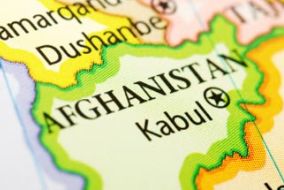Heinrich Boell Stiftung
One year before the official withdrawal of western troops from Afghanistan – Washington DC, Berlin, and London seem already to ‘be done’ with that part of the world. Many Afghans fear they will once again be forgotten. When I was in Afghanistan, in March this year, many Afghans told me that the achievements made in the last decade are at risk.
Some of them remember what happened following the Russian defeat in Afghanistan, in 1989. The United States successfully supported Afghan Mujahedeen in their fight against the Soviet Army by supplying weapons. But once the Russians were gone, the famous US Congressman Charlie Wilson – who was the mastermind behind American support for the Mujahedeen – could not even get enough votes in Congress for money to support Afghan schools.
According to Wilson, the US walked away from Afghanistan and created a power vacuum. Although the situation in 2014 seems to be different– at various international conferences, western governments committed to assistance for the years ahead—it would appear that the west is not seriously considering leveraging its influence to ensure that the critical commitments the Afghan government has made in these formative past years have a chance to survive.
The most important political event that Afghanistan is heading towards is the presidential elections next year. A peaceful transition of power could show that the country is on the right path towards a more stable and democratic state. But according to civil society groups, there are a few factors that give reason for concern. Currently, the Independent Election Commission is comprised of handpicked individuals close to the current political administration and the complaint commission was shut down.
Yet, it is incumbent upon the international community to ensure that the election commission is truly independent and comprised of credible members. The elections are almost entirely funded by the international community. This should be leverage enough to demand changes from the Afghan government. At the same time, care should be taken to make sure that crucial international election monitoring is not mistaken as interference by external actors.
Besides ensuring a credible election, cross-cutting issues such as conditionality of foreign assistance and accountability were the most important demands that came up during talks with Afghans that my organisation – the German Heinrich Böll Foundation – and the US-based Centre for American Progress held in recent weeks. In a joint effort, both organisations gathered dozens of Afghan civil society bodies to develop recommendations for the upcoming presidential elections, political settlement efforts and broader political reforms.
Among them, financial assistance should be conditioned on the implementation of reforms. This also includes the appointment of three new commissioners of the Afghanistan Independent Human Rights Commission, which is currently in a disappointing state. Many civil society activists welcomed the Tokyo Mutual Accountability Framework as the right tool for holding their government accountable for their performance.
Afghan activists say the western media is to blame for creating a perception that more financial assistance will not make a difference because of the profound lawlessness in the country. Reports about deadly attacks against International Security Assistance Force troops or aid workers, new high records in opium production and widespread corruption would ignore the other stories.
However, for Afghans, the international assistance of the last decade may have had its flaws but global efforts were definitely not wasted. Some 11 years ago, less than one million children went to schools. Now, more than eight million attend school according to United Nations Children’s Fund. The United States Agency for International Development notes that there has been a 57 per cent drop in infant mortality.
Dozens of media outlets, especially radio, inform Afghans relatively freely. These changes could not have happened without western support and collaboration with Afghan civil society members. The commitment and energy among activists in Afghan civil society that I saw is encouraging. They regard themselves as active partners for both the international community and the Afghan government. “Instead of being bystanders – we seek an active role in the process towards a more democratic, secure and open society in Afghanistan,” a civil society activist told me.
But the policy discourse on Afghanistan in western capitals is centred on the troop levels that will remain in the Hindu Kush, also in my own country Germany. It was a story about the plan by the German government to leave up to 800 out of the current 4,100 German soldiers in the country beyond 2014, which was covered in German media. The parallel tremendous drawdown of civilian aid workers is happening quietly without public attention.
But despite the Afghanistan fatigue in Washington DC or Berlin, western countries need to demonstrate a desire for long-term strategic cooperation. As international combat troops leave Afghanistan, it is important to strengthen the civil component of international assistance and to support Afghan civil society in maintaining the gains that they have made this far. Training soldiers in the country is not enough for a stable Afghanistan.
Article originally published in Public Service Europe
______________________________________________________________________________________
Sebastian Gräfe is programme director for foreign and security policy at the Washington DC office of the Heinrich-Böll-Stiftung foundation – part of the global Green political movement


